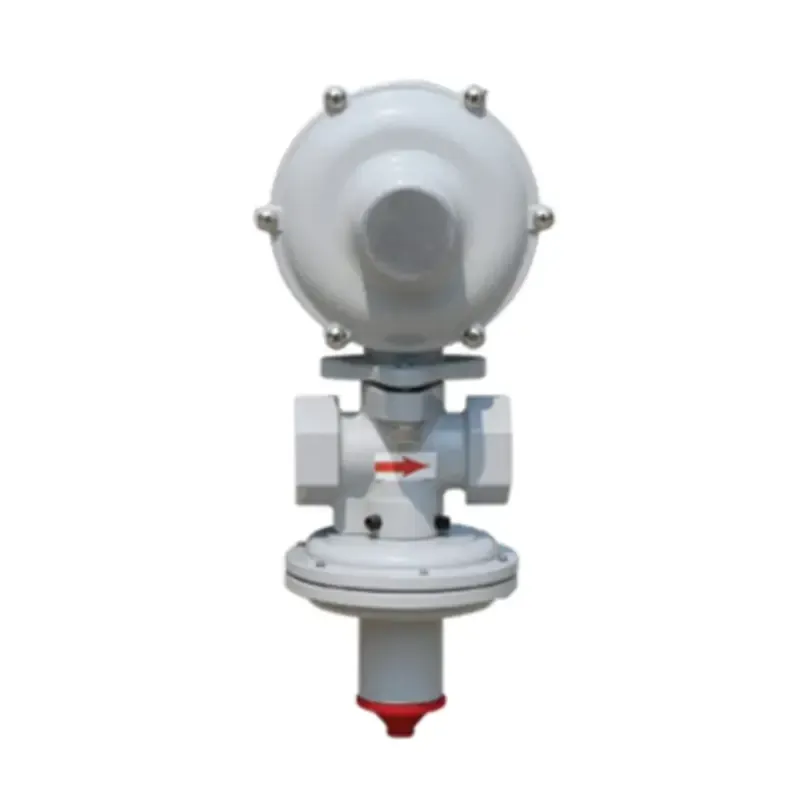
Dec . 01, 2024 22:31
Back to list
Understanding Appliance Regulators for Efficient Energy Management and Enhanced Device Performance
Understanding Appliance Regulators A Comprehensive Overview
Appliance regulators play a critical role in ensuring the safe and efficient operation of various household and industrial devices. These regulators are specifically designed to maintain consistent performance levels by managing the flow of electricity or gas to appliances, thus preventing damage and promoting longevity. As the demand for energy-efficient and reliable appliances continues to rise, understanding the function and importance of appliance regulators becomes essential.
What Are Appliance Regulators?
At their core, appliance regulators are devices that control and stabilize the supply of energy to appliances. They can be found in two main categories gas regulators and electric regulators. Gas regulators are often used with gas-powered appliances such as stoves, heaters, and water heaters. They ensure that the gas flows at a safe and efficient rate, which promotes optimal performance while preventing hazards like gas leaks and explosions.
Electric regulators, on the other hand, are often integrated into electric appliances, such as refrigerators, air conditioners, and heating systems. They work by modulating the power supply, adapting to fluctuating voltage levels to prevent overloads that can cause electrical fires or damage to sensitive components.
How Do Appliance Regulators Work?
The operation of appliance regulators varies depending on their design and application. Gas regulators typically utilize a diaphragm mechanism that adjusts the output pressure of the gas according to the demand. When the appliance requires less gas, the diaphragm moves to reduce the pressure, preventing an excess flow. Conversely, when the demand increases, the diaphragm adjusts to allow more gas through. This constant adjustment ensures a safe operating environment and efficient energy use.
Electric regulators, such as voltage stabilizers, work by continuously monitoring the incoming voltage supply. They utilize transformers and electronic circuitry to either boost or reduce voltage levels to ensure that appliances receive the appropriate amount of power. This not only protects against power surges but also helps maintain optimal performance, reducing energy waste.
The Importance of Appliance Regulators
appliance regulators

1. Safety One of the primary purposes of appliance regulators is to enhance safety. By controlling the flow of gas or electricity, these regulators minimize the risks of dangerous incidents, such as explosions, fires, or electrical shocks.
2. Efficiency Regulators contribute to the energy efficiency of appliances. By enabling appliances to operate within specified power ranges, they help reduce overall energy consumption, leading to lower utility bills and a smaller carbon footprint.
3. Longevity of Appliances Appliances that operate under regulated conditions tend to have a longer lifespan. By preventing overloading and ensuring optimal operational parameters, regulators protect sensitive components from wear and tear, minimizing the need for repairs and replacements.
4. Compliance with Standards Many regions have strict regulations regarding gas and electrical installations. Using appropriate regulators ensures compliance with safety standards, reducing legal risks and potential penalties for non-compliance.
Choosing the Right Appliance Regulator
When selecting an appliance regulator, several factors must be considered
- Type of Appliance Understand whether the appliance is gas or electric, as this will dictate the type of regulator needed. - Specifications Look for regulators that match the specific requirements of your appliances in terms of voltage, pressure, and capacity. - Quality and Certification Opt for regulators that meet safety standards and have certifications from recognized organizations, ensuring reliability and safety. - Installation Some regulators may require professional installation, especially gas regulators, as improper installation can lead to severe hazards.
Conclusion
In conclusion, appliance regulators are vital components that ensure the safe and efficient operation of various appliances in our homes and workplaces. By controlling energy flow, they not only promote safety but also enhance efficiency and prolong the lifespan of appliances. As technology evolves, so too will the designs and capabilities of appliance regulators, making them an ever-important aspect of modern energy management. Whether you are upgrading your existing appliances or installing new ones, understanding the role of appliance regulators will ultimately contribute to a safer and more efficient living or working environment.
Next:
Latest news
-
Safety Valve Spring-Loaded Design Overpressure ProtectionNewsJul.25,2025
-
Precision Voltage Regulator AC5 Accuracy Grade PerformanceNewsJul.25,2025
-
Natural Gas Pressure Regulating Skid Industrial Pipeline ApplicationsNewsJul.25,2025
-
Natural Gas Filter Stainless Steel Mesh Element DesignNewsJul.25,2025
-
Gas Pressure Regulator Valve Direct-Acting Spring-Loaded DesignNewsJul.25,2025
-
Decompression Equipment Multi-Stage Heat Exchange System DesignNewsJul.25,2025

